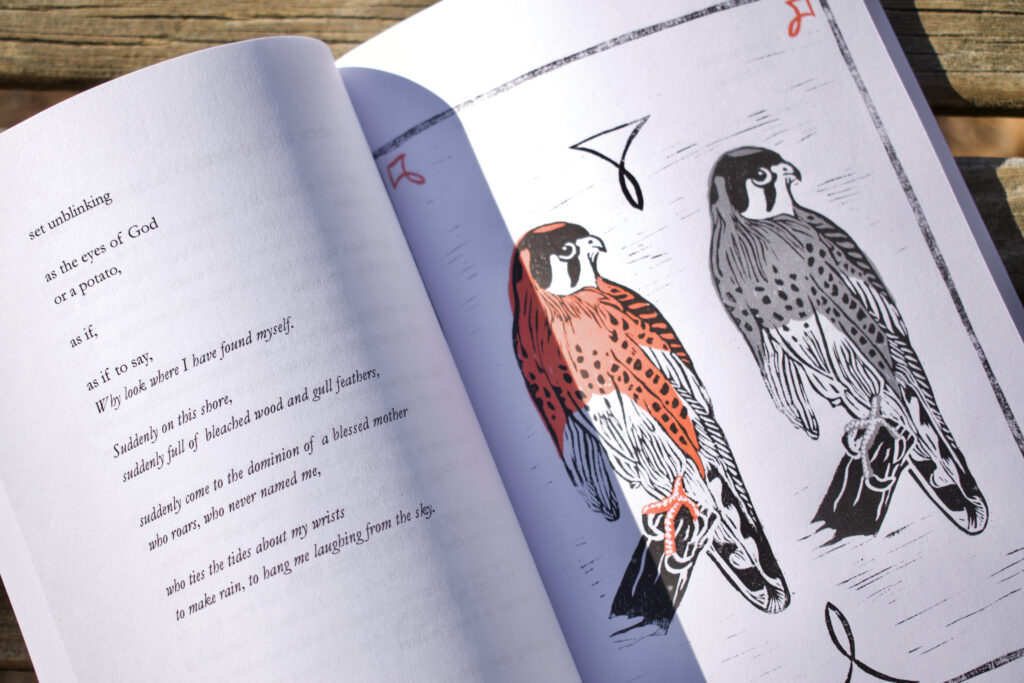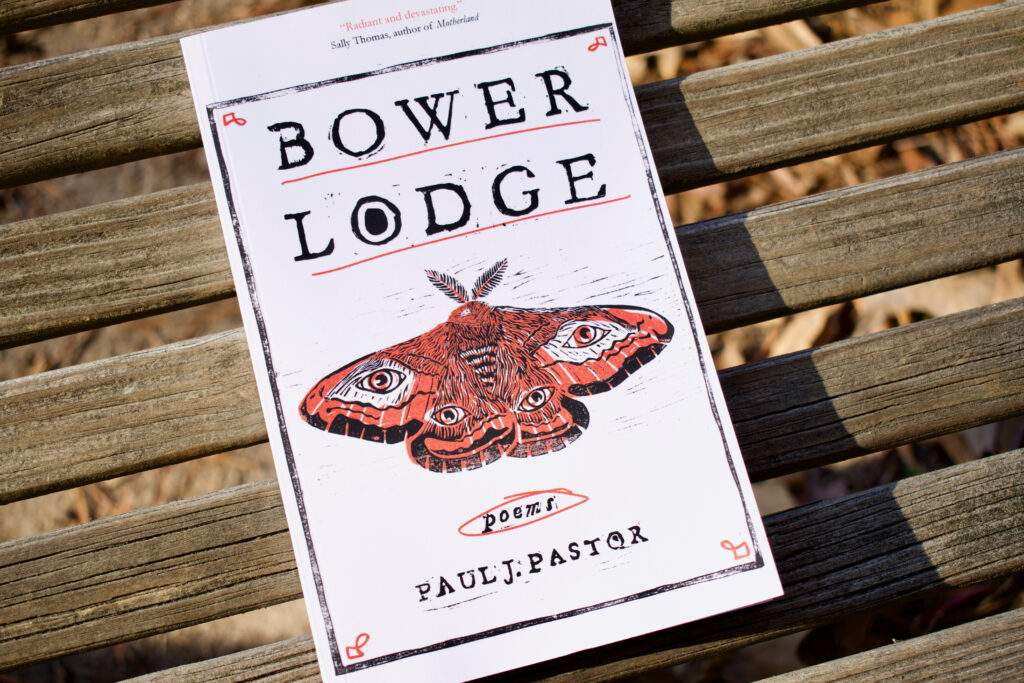A Book Review
“We who live in wonders / must be blind to wonders.” These lines from the middle of the poem “Right Angles,” from the middle of Paul J. Pastor’s Bower Lodge point to Pastor’s gift for seeing the wonders he lives in. The poems of this new collection from Fernwood Press are written by an observer.
The narrative of a traveling Wanderer frames these 80+ poems that direct our attention to alders, bones, and mended pots along the way to Bower Lodge, a place of death and life. This is a journey headed to resurrection, and not merely resurrection, but transformation. By no accident, the accompanying progression of artist Jacob Crosdin’s bright linocut prints culminates in a beautiful moth.
The poems are short and serious. Each is freighted with images—many curious and strange, such as “a child’s glass eye” (“Hold”). I do not doubt each image holds special significance for the author. The reader, like the wanderer in the preparatory poem “And So Under,” stumbles over the “utmost tip” of a buried pyramid and thinks it only a “weird rock.” Pastor clearly does not intend for us to understand everything in his poems, but he does want us to wonder. For instance, in “Basement Caviar,” who is the relative? Why is he eating caviar? I can only guess. But the image sticks around.
Light and color permeate the work. Indigo squirrels, the cayenne-colored Earth, saffron-colored minds, and glass-green brine paint the reader’s mental representation.
Bower Lodge makes you wonder. I’m still wondering about the poems and their meaning. But in a wonderful way, they point their reader to the natural wonders and the spiritual wonders that we should only want to dwell on more. There is no message of transformation and life after death without Christ, who also died (“Good Friday”), rose again (perhaps “Ephesus at Sunset”), and shall return (cf. “Prophecy”).
Pastor’s strength lies in crafting stories that gift his readers with a shared wonder. I follow him on Twitter for thoughtful tales of pipe tobacco and fungi. In an Annie Dillardian manner, he expresses much about God and nature in a few carefully chosen words. Many poems in Bower Lodge succeed in communicating a thoughtful story full of meaning and care. And I suspect those protruding pyramidia I overlooked signaled significant pyramids under the sand. I encourage anyone, poetry lover or not, to read Pastor’s work to experience the wonder he’s boldly shared.
Special thanks to Fernwood Press for a free review copy of this book. This did not affect my thoughts so far as I’m aware.


0 Comments